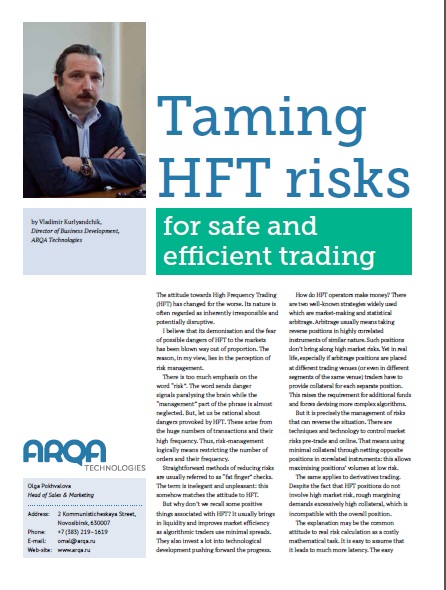Published
- 01:00 am

ModernFi announced today that it has closed an $18.7 million Series A funding round to bring its tech-forward platform to community and regional banks to help them grow, retain, and manage their deposits. Led by Canapi Ventures, the Series A also had participation from Andreessen Horowitz, Remarkable Ventures, and leading banks Huntington National Bank, First Horizon, and Regions. This round adds to a $4.5 million seed round led by Andreessen Horowitz, bringing the company's total raised to over $23 million to date.
Faced with higher interest rates and stress in the sector, banks have been seeking new, innovative options that can drive deposits. ModernFi helps banks thrive in an increasingly competitive banking landscape, and attract and retain clients that might otherwise go to the largest banking institutions or leave the banking sector entirely.
“Community and regional banks form the foundation of the American economy, providing an outsized amount of credit and banking services to critical industries and areas that might otherwise be overlooked,” said Paolo Bertolotti, CEO and Cofounder of ModernFi. “Faced with fundamental shifts in the behavior of deposits, institutions benefit from modern tools to manage and grow their funding. ModernFi has been privileged to help institutions of all sizes protect their deposit base, and the team looks forward to continuing its support of the sector.”
ModernFi operates a deposit network through which banks can grow, retain, and manage their deposit base by sweeping funds, sourcing deposits, and providing extended insurance to depositors through program banks. ModernFi’s solutions help banks attract and retain large-value depositors, driving growth and increasing balance sheet stability. Unlike alternatives, ModernFi streamlines onboarding and operations for banks and their clients, increasing the usability and reach of sweep and reciprocal products.
“The industry needs a next-generation solution for reciprocal deposits that is seamlessly integrated into online banking, built both API-first and cloud-native,” said Neil Underwood, Co-Founder and General Partner at Canapi. “ModernFi has built exactly that, at the exact right time and place. Canapi’s strong bank network and deep fintech experience will help accelerate significant deposit flows through the platform.”
Since its first raise, ModernFi has quickly established itself as the country’s only tech-enabled deposit network. While existing networks rely on manual processes that have limited the adoption and use of network products, ModernFi’s network is built on a modern tech stack to eliminate the friction for depositors and remove the operational burden for banks, unlocking the full potential of sweep and reciprocal products.
“Huntington is laser-focused on delivering innovative products and services that meet the needs of our customers and colleagues,” said Igor Cerc, Chief Enterprise Strategy Officer for Huntington National Bank and Head of Huntington Ventures. “ModernFi's deposit network delivers critical features and capabilities around deposit management for the industry. ModernFi’s functionality should expand digital capabilities for the banking sector and offers a robust, modern service with the potential to further differentiate how our Wealth Management customers can manage their money.”
"We are thrilled to partner with ModernFi to bring a next-generation deposit network to market," said Tyler Craft, Director of Transformation - Fintech & Emerging Technology at First Horizon Bank. "Deposit management is a key priority for the banking sector right now. ModernFi's technology to streamline onboarding and operations for depositors and banks provides an innovative additional way for our industry to serve clients."
Faced with a rapidly evolving deposit landscape, banks across the country have turned to ModernFi to help manage their funding. Elevated interest rates and the advancement of technology including digital banking and real-time money movement have fundamentally changed the speed and stability of deposits. Coupled with increased regulatory scrutiny on liquidity and funding, the need for ModernFi’s software for deposit management has never been greater.
"At this critical time in the banking sector, we're thrilled to reaffirm our investment in ModernFi," said David Haber, General Partner at Andreessen Horowitz. "In the face of unprecedented deposit outflows and extraordinary banking events, ModernFi's deposit network delivers critical stability and control over deposit management. With their strategic position and track record, we're confident ModernFi will further catalyze growth and provide crucial support to American banks."
ModernFi was founded in 2022 by Paolo Bertolotti and Adam DeVita, who met as undergraduates at Columbia University. Both focused on deposit and cash management before ModernFi, with Bertolotti completing a PhD at MIT and DeVita working as a Product Manager at Citi. Passionate about community banking as the foundation of the American economy, they saw an opportunity in ModernFi to improve and modernize how financial institutions operate.
Related News
- 07.06.2022 -- 02:09 pm
Our special guest today is Julian Liniger, Co-Founder and CEO at Relai, the world's easiest Bitcoin investing app. His educational background is in Business Administration and Psychology and he has previously worked for Gsponer Consulting Group International and Synfluence.
Watch the video and learn more about latest trends in Bitcoin investments landscape!
Other Videos
- 08:00 am

New data from Klarna, a leading global retail bank, payments and shopping service, shows that Brits are saving a higher share of their income each month compared to their international peers but are less interested in investing their money.
Klarna’s Money Management pulse, conducted across 11 countries, finds that UK consumers save the most, putting aside 14% of their income each month, more than any other country except Australia and on an upward trend. On average, UK consumers save £311 each month, 10% more than what they were saving at the beginning of 2021, for an estimated total of £16 billion. The most popular reasons for savings are to go on vacation (37%), putting money away for retirement (34%) and making home improvements (27%).
While Brits show higher preference in putting their money in savings accounts, they are less interested in investing, with only 3 in 10 (29%) doing so against the global average of 4 in 10 (37%). 9 in 10 (86%) Brits put their money in a savings account, and among those who do invest, stocks are the most popular investment asset in the UK, with 7 in 10 (67%) choosing this form of investment, followed by mutual funds (34%) and bonds (34%).
“As volatility in the stock market has increased over the past few months, Brits have possibly become more cautious with their money, saving at a higher rate. After over two years of uncertainty over traveling, it’s perhaps not surprising that one of the main reasons for savings is to go on vacation, followed by putting away pension money.” Viveka Söderbäck Consumer trend expert at Klarna commented.
Related News
- 16.12.2021 -- 07:30 am
Prytek combines top-tier managed services companies and leading proprietary technology under one roof via a decentralized organizational structure. Visit website: https://prytek.com/
Other Videos

Olha Zhydik
Content Marketing Manager at ELEKS
Many businesses deal with fintech daily – from streamlining transactions between friends to processing sophisticated financial information. see more
- 06:00 am

Shopify Inc., a leading global commerce company, announced new and updated products at Reunite, the company’s first virtual event that hosted members of Shopify’s global merchant community. Reunite, which was also open to Shopify partners and the public, covered the latest product news in areas like finance, retail, and shipping to showcase how Shopify is helping merchants future-proof their businesses amid COVID-19.
"These are unprecedented times. This is going to be one of the most challenging chapters in all of our lives. But entrepreneurs are the kind of people who make the most out of what they’ve got. They’re the people who can see opportunity when everyone else sees despair," said Tobi Lütke, CEO of Shopify. "Right now, we’re dedicating ourselves to helping as many small businesses as possible survive this. We’ve looked far and wide into our roadmaps for everything that might be helpful right now, and have tried to pull as many things forward as we could, shipping them and getting them out the door for our merchants."
From helping merchants manage their store’s money, to offering effortless local delivery options, to creating new ways of generating revenue at checkout, the products and updates announced at Reunite will help merchants navigate an ever-evolving retail landscape and plan for the future.
Introducing Shopify Balance, the business account built for independent businesses and entrepreneurs
- Most of today’s banking products are built from a traditional financial institution’s point of view and designed for large, established businesses. They aren’t designed for the needs of independent business owners, and aren’t as flexible as they need to be. In our research:
- We found that two in five merchants are currently using their personal bank accounts and cards for business, meaning they’re combining their personal and business finances, making it difficult to measure the financial health of the business.
- Shopify Balance will help close this gap by giving merchants access to critical financial products to start, run, and grow their businesses.Shopify Balance will include:
- Shopify Balance Account: A one-stop-shop within the Shopify admin where merchants can get a clear view of cash flow, pay bills, track expenses, and make decisions about the future of their business.
- Shopify Balance Card: Physical and virtual cards that merchants can use to access their money faster when spending in-store, with mobile or online, as well as withdrawing from ATMs.
- Rewards: We plan to offer merchants cashback and discounts on everyday business spending like shipping and marketing.
- With Shopify Balance there will be no monthly fees or minimum balances.
- Shopify Balance will launch in early access later this year in the U.S.
Enabling ‘Buy Now, Pay Later’ at checkout
- Shop Pay Installments, Shopify’s new “Buy Now, Pay Later” option, will let merchants offer more payment choice and flexibility at checkout, giving consumers the option to split purchases into four equal payments over time, interest-free and with no additional fees to consumers.
- Flexible payments can help increase a merchant’s average order size by making purchases more palatable to consumers—particularly in the current economic climate.
- Working with a partner, Shopify will launch Shop Pay Installments later this year. It will be available to U.S. merchants eligible for Shopify Payments.
A new way for merchants to deliver locally
- COVID-19 has underscored the importance of shopping locally. More than ever, merchants need efficient ways to connect with their local customers today and in the future.
- Average daily local orders on Shopify for the six weeks ending April 24 grew 176%, compared to the prior six weeks, coinciding with the introduction of physical distancing measures; and, as of April 24, 26% of brick-and-mortar merchants in Shopify’s English-speaking geographies were using some form of local pickup and delivery solution, compared to just 2% at the end of February.
- Shopify has begun rolling out a new Local Delivery product for merchants globally to offer an improved and simplified local delivery experience. Merchants can:
- Define a local delivery area using distance radius or zip/postal codes
- Set local delivery fees and minimum order price
- Fulfill local orders through Shopify, Shopify POS, and Shopify Mobile
- Use the new Shopify Local Delivery app to create optimized delivery routes, and send customer notifications when deliveries are on the way
Expanding Shopify Fulfillment Network
- Shopify Fulfillment Network, which launched in 2019, has graduated from its early access stage, and is actively accepting merchant applications.
- Shopify Fulfillment Network continues to take away the complexities of fulfillment by investing in technology and a collaborative robotics workforce, allowing merchants to join, scale and evolve their fulfillment strategies through its growing partner network.
- Shopify opened its first research and development hub in Ottawa to trial new robotics and fulfillment technologies, iterate and improve on warehouse operations, and fulfill Canadian-based orders.
Improving the online store for all entrepreneurs
- As COVID-19 has forced many businesses to move online, Shopify is releasing more online store features that will help entrepreneurs from a range of verticals adapt.
- Merchants now have the option to collect tips at checkout. We’ve also released a new one-page theme called Express that enables merchants to get online quickly. These features were built with our local restaurants and coffee shops in mind, but can also be used by merchants in any vertical looking to connect with their customers online.
- As of March 20, selling gift cards has been available to all merchants, and Shopify has seen more merchants utilizing this feature than ever before. For businesses that can’t deliver products during COVID-19, this feature has provided a much-needed supplement to cash flow.
Giving merchants more choice with more channels
- Recently, Shopify announced Shop, a first-of-its-kind direct-to-consumer app and personal shopping assistant to make purchasing and order tracking frictionless.
- Coming soon, Shopify’s new Shop Channel will let merchants control how their brand appears on Shop.
- Merchants will be able to customize their profile, and how and where they appear on the app.
- Shop Channel will first be available to merchants in Canada and the U.S.
- On May 19, Facebook introduced Facebook Shops, which allows merchants to build branded versions of their online store within Instagram and Facebook.
- Shopify is partnering with Facebook to help businesses create branded storefronts to help merchants deliver unique shopping experiences, and enable consumers to browse and purchase without ever leaving the apps.
To hear all product announcements and to listen to the entire Reunite broadcast, visit shopify.com/reunite.
Related News
- 09:00 am

Bank of Scotland, Barclays, Halifax and Lloyds Bank are working with Zapp, VocaLink’s payments innovation team, to deliver “Pay by Bank app” that makes paying with your mobile safe, secure and convenient
VocaLink today announces its new “Pay by Bank app” service is soon to be available to customers of four of the UK’s biggest banks.
David Yates, CEO VocaLink, said, “We’re delighted to announce our partnership with four of the UK’s biggest financial institutions, alongside the growing number of retailers who are supporting Pay by Bank app. This service is a convenient way to pay with your mobile and we look forward to working with a number of high street brands to bring Pay by Bank app to millions of UK banking customers. With four of the UK’s biggest banks now committed to Pay by Bank app, we look forward to the remaining banks coming on board in the near future.”
Whether users are registering for the first time or paying with a mobile, “Pay by Bank app” uses the bank’s own security methods to verify the user. In addition to the trusted bank security, “Pay by Bank app” provides a simple and convenient way for users to make a purchase online, via an app or in store. Customers will be able to see their account balances before they pay, helping to manage their money more easily.
Stephen Noakes, Managing Director Retail Customer Products at Lloyds Banking Group said, “An increasing number of our customers want to bank and transact on the go and we want our customers to have the choice of the most convenient and secure payment innovations available. With more and more shopping taking place online we want to offer our customers a service that is a safe and secure way to spend. Pay by Bank app benefits from the same high security as your mobile banking app and makes shopping and paying online more convenient.”
Many major high street retailers have already confirmed their support for the service as an easy and safe way for consumers to pay for goods and services instantly. “Pay by Bank app” allows money to move instantly from a customer account to a merchant account through real-time payments. Payments work through secure digital “tokens”, meaning customers never reveal any of their financial details (including account details) to merchants when they are shopping.
Darren Foulds, Managing Director for Pingit at Barclays, which will be the first bank to launch Pay by Bank app payments from autumn 2016, said, “Mobile banking is the first choice for payments for an increasing number of people. With the introduction of the Pay by Bank app features, mobile payments to merchants are going to be even simpler and more secure for customers. We can’t wait to launch the service, and give our millions of Pingit users the opportunity to pay a range of retailers instantly without having to input or share their bank account details.”
Related News
- 09.05.2016 -- 03:04 pm
Financial IT speaks to Kevin Houstoun, Chairman of Rapid Addition about the latest company's goals and the ongoing changes in trading industry.
- Recently Rapid Addition completed the acquisition of DET that specializes in designing, implementing and supporting electronic trading platforms. Please comment how the acquisition will affect the company and its offerings in general.
- Trade Tech Europe is about the ongoing changes in electronic trading environment, what was significant for your company in attending the event?
- What are the issues and challenges you are finding in the industry and how are you providing solutions?
- Going forward what are the trends and advancements that we should expect to see in electronic trading in the future?
Other Videos

- White Papers
- 17.12.2013 07:00 pm
The attitude towards High Frequency Trading (HFT) has changed for the worse. Its nature is often regarded as inherently irresponsible and potentially disruptive.
I believe that its demonization and the fear of possible dangers of HFT to the markets has been blown way out of proportion. The reason, in my view, lies in the perception of risk management.
There is too much emphasis on the word “risk”. The word sends danger signals paralysing the brain while the “management” part of the phrase is almost neglected. But, let us be rational about dangers provoked by HFT. These arise from the huge numbers of transactions and their high frequency. Thus, risk-management logically means restricting the number of orders and their frequency.
Straightforward methods of reducing risks are usually referred to as “fat finger” checks. The term is inelegant and unpleasant: this somehow matches the attitude to HFT.
But why don’t we recall some positive things associated with HFT? It usually brings in liquidity and improves market efficiency as algorithmic traders use minimal spreads.
They also invest a lot into technological development pushing forward the progress.
Please fill up these fields in order to read the publication.
Other White Papers
- 01:00 am

Nuvei today announced that Chow Sang Sang Holdings International Limited (HKEX: 116), one of the most iconic jewelers in Greater China, has selected its global payments platform to drive the next phase of its international growth, staring with expansion into North America.
Nuvei recently received a Money Services Operator (MSO) license in Hong Kong, enabling the company to offer local acquiring and settlement in one of Asia's most strategically important markets. It also reinforces Nuvei's long-term commitment to the APAC region, where it continues to expand its on-the-ground presence across Greater China, Japan, Singapore, and Australia.
As Chow Sang Sang accelerates its digital payments transformation, Nuvei will deliver seamless, secure, and fully localized payment experiences to support the brand's international growth. Through a single integration with Nuvei's platform, the jeweler gains access to:
- Local acquiring in 50 markets
- Support for 150+ currencies and 720 alternative payment methods
- Direct connections to global card networks to drive higher approval rates and reduced payment friction
"As we expand internationally, especially into North America, we needed a payments partner who shares our dedication to excellence," added Ms. Genevieve Chow, Chief Brands Officer at Chow Sang Sang. "Nuvei's platform, local knowledge, and global reach enable us to deliver the premium experience our customers expect, online and in-store. This partnership is a key part of our omnichannel strategy."
This announcement comes amid a boom in digital luxury. Global online jewelry sales are projected to rise from $105.6 billion in 2024 to $166 billion by 2029, a 16% CAGR. In the U.S. alone, ecommerce sales of jewelry are projected to rise from $22.5 billion to $37.9 billion over the same period – more than tripling since 2017.
"Luxury brands like Chow Sang Sang are raising the bar for global ecommerce," said Phil Fayer, Chair and CEO of Nuvei. "They require partners who can deliver intelligent infrastructure that matches their brand sophistication. With our MSO license and expanding APAC footprint, we're proud to support the region's most ambitious companies with payments technology built for scale."
Chow Sang Sang, which operates over 900 self-run stores across Mainland China, the Hong Kong Region, the Macau Region, and the Taiwan Region, brings to market a portfolio of beloved brands, including CHOW SANG SANG, PROMESSA, MINTYGREEN, and EMPHASIS.
The jeweler joins a growing list of Hong Kong-based merchants across verticals — including airlines, hospitality, gaming, online travel, car parking, and EV charging — that have recently chosen Nuvei to scale their global operations. Nuvei already supports APAC expansion for category leaders such as Shein, Temu, and Charles & Keith.










